Hyundai i30 Wagon vs Toyota RAV4 - Differences and prices compared
Compare performance (140 HP vs 306 HP), boot space and price (24800 £ vs 35100 £ ) at a glance. Find out which car is the better choice for you – Hyundai i30 Wagon or Toyota RAV4?
Costs and Efficiency:
Price and efficiency are key factors when choosing a car – and this is often where the real differences emerge.
Hyundai i30 Wagon has a decisively advantage in terms of price – it starts at 24800 £ , while the Toyota RAV4 costs 35100 £ . That’s a price difference of around 10286 £.
Fuel consumption also shows a difference: Toyota RAV4 manages with 1 L and is therefore decisively more efficient than the Hyundai i30 Wagon with 5.70 L. The difference is about 4.70 L per 100 km.
Engine and Performance:
Power, torque and acceleration say a lot about how a car feels on the road. This is where you see which model delivers more driving dynamics.
When it comes to engine power, the Toyota RAV4 has a decisively edge – offering 306 HP compared to 140 HP. That’s roughly 166 HP more horsepower.
In acceleration from 0 to 100 km/h, the Toyota RAV4 is convincingly quicker – completing the sprint in 6 s, while the Hyundai i30 Wagon takes 9.80 s. That’s about 3.80 s faster.
In terms of top speed, the Hyundai i30 Wagon performs barely noticeable better – reaching 197 km/h, while the Toyota RAV4 tops out at 180 km/h. The difference is around 17 km/h.
Space and Everyday Use:
Beyond pure performance, interior space and usability matter most in daily life. This is where you see which car is more practical and versatile.
Both vehicles offer seating for 5 people.
In curb weight, Hyundai i30 Wagon is clearly perceptible lighter – 1316 kg compared to 1745 kg. The difference is around 429 kg.
In terms of boot space, the Hyundai i30 Wagon offers minimal more room – 602 L compared to 580 L. That’s a difference of about 22 L.
In maximum load capacity, the Toyota RAV4 performs hardly perceptible better – up to 1690 L, which is about 40 L more than the Hyundai i30 Wagon.
When it comes to payload, Toyota RAV4 slightly takes the win – 600 kg compared to 524 kg. That’s a difference of about 76 kg.
Who wins the race?
The Toyota RAV4 proves to be wins the duel decisively and therefore becomes our DriveDuel Champion!
Toyota RAV4 is the better all-rounder in this comparison.
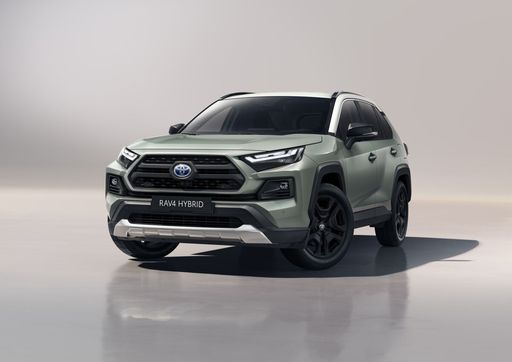
Toyota RAV4
Costs and Consumption
View detailed analysis
Engine and Performance
View detailed analysis
Dimensions and Body
View detailed analysis
Hyundai i30 Wagon
The Hyundai i30 Wagon is a practical family hauler that pairs roomy, sensible packaging with clean, modern lines and a surprisingly composed chassis. Comfortable, well-equipped and priced to make rivals sweat, it quietly ticks the boxes for daily life and weekend escapes while still managing a little grin on twisty roads.
details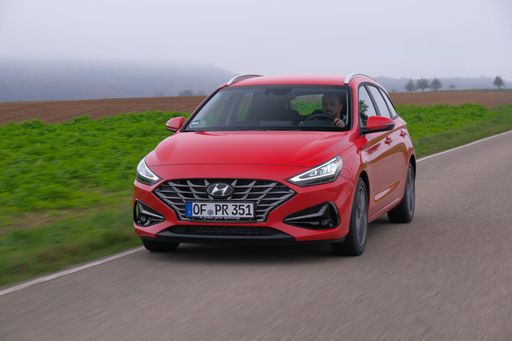
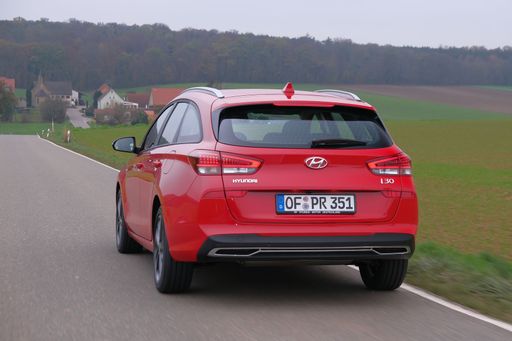
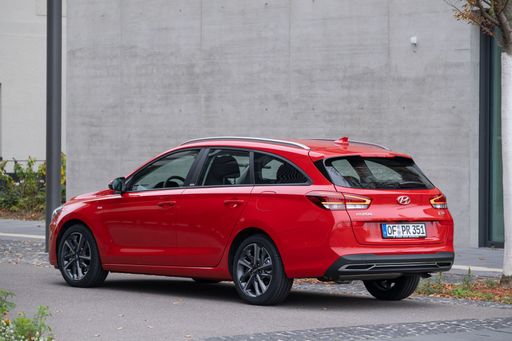
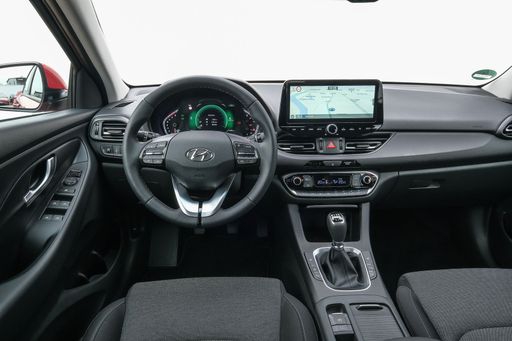
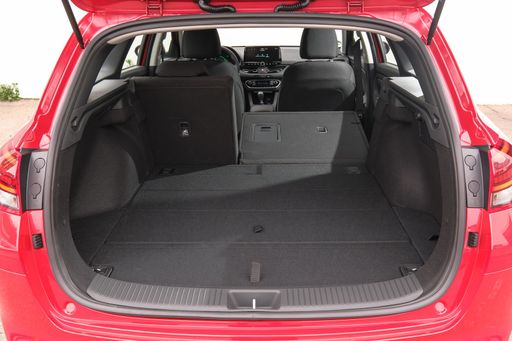
Toyota RAV4
The Toyota RAV4 feels like a sensible friend on the road, marrying dependable practicality with a dash of SUV personality that keeps daily driving from turning dull. Comfortable and easy to live with, it looks tough without shouting and quietly gets the job done — a sensible pick for buyers who want versatility without drama.
details
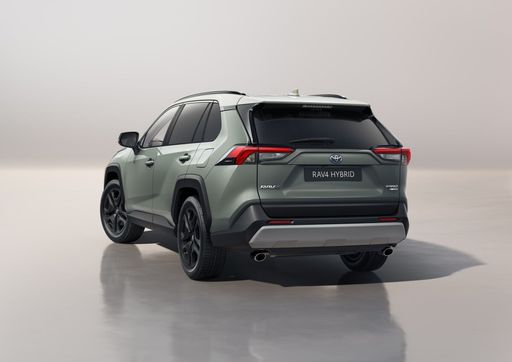
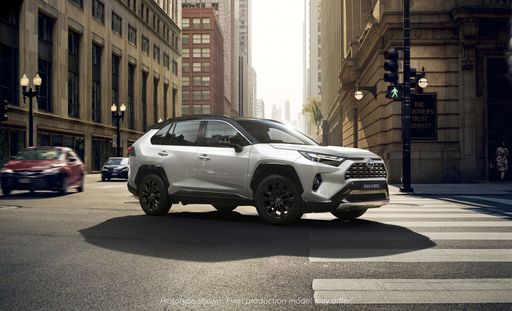
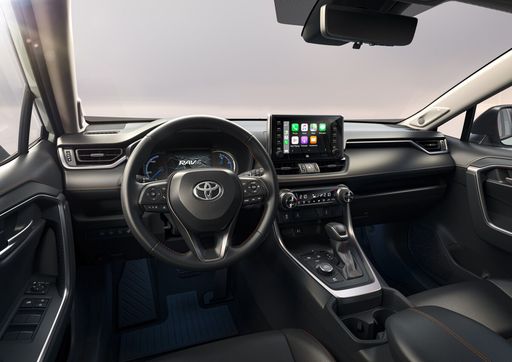
Costs and Consumption |
|
|---|---|
|
Price
24800 - 30100 £
|
Price
35100 - 55700 £
|
|
Consumption L/100km
5.7 - 6 L
|
Consumption L/100km
1 - 5.6 L
|
|
Consumption kWh/100km
-
|
Consumption kWh/100km
-
|
|
Electric Range
-
|
Electric Range
75 km
|
|
Battery Capacity
-
|
Battery Capacity
-
|
|
co2
130 - 136 g/km
|
co2
22 - 128 g/km
|
|
Fuel tank capacity
50 L
|
Fuel tank capacity
55 L
|
Dimensions and Body |
|
|---|---|
|
Body Type
Estate
|
Body Type
SUV
|
|
Seats
5
|
Seats
5
|
|
Doors
5
|
Doors
5
|
|
Curb weight
1316 - 1461 kg
|
Curb weight
1745 - 1910 kg
|
|
Trunk capacity
602 L
|
Trunk capacity
520 - 580 L
|
|
Length
4585 mm
|
Length
4600 mm
|
|
Width
1795 mm
|
Width
1855 mm
|
|
Height
1475 mm
|
Height
1685 mm
|
|
Max trunk capacity
1650 L
|
Max trunk capacity
1604 - 1690 L
|
|
Payload
439 - 524 kg
|
Payload
390 - 600 kg
|
Engine and Performance |
|
|---|---|
|
Engine Type
Petrol, Petrol MHEV
|
Engine Type
Full Hybrid, Plugin Hybrid
|
|
Transmission
Manuel, Automatic
|
Transmission
Automatic
|
|
Transmission Detail
Manual Gearbox, Dual-Clutch Automatic
|
Transmission Detail
CVT
|
|
Drive Type
Front-Wheel Drive
|
Drive Type
Front-Wheel Drive, All-Wheel Drive
|
|
Power HP
100 - 140 HP
|
Power HP
218 - 306 HP
|
|
Acceleration 0-100km/h
9.8 - 13.3 s
|
Acceleration 0-100km/h
6 - 8.4 s
|
|
Max Speed
178 - 197 km/h
|
Max Speed
180 km/h
|
|
Torque
172 - 253 Nm
|
Torque
-
|
|
Number of Cylinders
3 - 4
|
Number of Cylinders
4
|
|
Power kW
74 - 103 kW
|
Power kW
160 - 225 kW
|
|
Engine capacity
998 - 1482 cm3
|
Engine capacity
2487 cm3
|
General |
|
|---|---|
|
Model Year
2024
|
Model Year
2024 - 2025
|
|
CO2 Efficiency Class
D, E
|
CO2 Efficiency Class
D, B
|
|
Brand
Hyundai
|
Brand
Toyota
|
What drivetrain options does the Hyundai i30 Wagon have?
Available configurations include Front-Wheel Drive.




